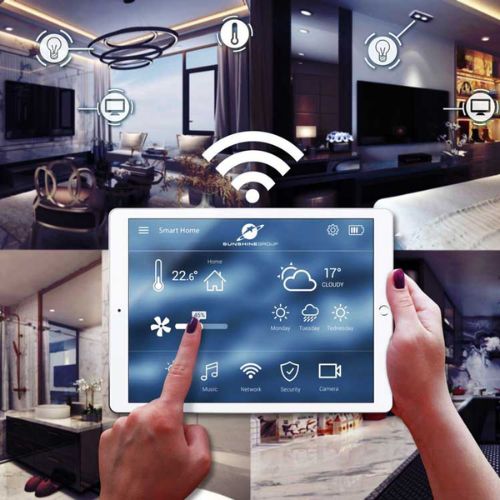Uncategorized
Smart Financial Management: How to Budget for Smart Home Electronics
In the modern digital age, smart electronic devices have become an essential part of daily life. Products like smart speakers, security systems, smart air conditioners, and lighting systems enhance convenience and efficiency at home. However, owning these devices is not cheap, raising an important question: how can you manage your finances effectively when investing in smart home technology?
Below are some strategies for managing personal finances wisely when you plan to purchase advanced smart home electronic devices.
1. Create a Financial Plan Before Shopping

One of the best ways to manage finances is to plan your spending ahead of time. Set a specific budget for the devices you want to buy. Start by listing all the necessary devices for your smart home, such as a robot vacuum, security cameras, or smart lighting systems.
When creating your plan, estimate the cost of each device, including maintenance, software updates, and energy consumption. This gives you an overview of your expenses and helps you avoid impulsive buying decisions.
Tip: Don’t forget to factor in hidden costs such as installation and warranty services, as these expenses can add up after purchasing.
2. Prioritize Essential Devices
Consumers are often attracted to the latest technology, but not all devices are necessary. A smart way to manage your finances is to prioritize the devices that directly impact your quality of life. For instance, investing in a smart lighting system to save energy might be more practical than buying a smart speaker.
By shopping with a plan and setting priorities, you can avoid wasting money on devices you rarely use or don’t truly need.
3. Research and Compare Prices Before Buying
When purchasing smart electronics, comparing prices and reading reviews from other users is crucial. Many online and offline retailers offer promotions or discounts for bulk purchases or membership subscriptions.
Additionally, check the features and brands of different products to find the one that truly meets your needs. Don’t just buy a device because it’s cheaper; make sure it has high durability and fully supports the smart features you want.
Tip: Don’t forget to use online price comparison tools to find the best deals on the products you’re interested in.
4. Take Advantage of Promotions and Financial Offers
Many retailers and brands offer regular promotions, especially during times like Black Friday, Cyber Monday, or end-of-year sales. These are excellent opportunities to purchase devices at lower prices without heavily impacting your budget.
Moreover, many retailers also offer 0% interest installment programs. This allows you to own a device without paying the full cost upfront, reducing financial stress and giving you time to save.
5. Plan Your Payments Wisely
When shopping for smart electronics, you might need to use a credit card or take out installment loans. It’s important to plan your repayments wisely to avoid debt or high-interest rates.
If you choose an installment plan, make sure you can pay on time to avoid additional interest charges. For those using credit cards, consider paying off the full balance each month to avoid accumulating interest.
Tip: Whenever possible, prioritize paying with cash or savings instead of borrowing to avoid financial burdens in the future.
6. Use Devices Efficiently to Save on Long-Term Costs

One of the significant benefits of smart electronic devices is their ability to save energy, but this only works if you use them correctly. For instance, smart lighting systems can automatically turn off lights when no one is home, helping you save on monthly energy bills.
Additionally, devices like smart air conditioners can adjust the temperature based on your schedule, optimizing energy use and reducing electricity costs.
Tip: Make full use of automation and remote control features to save on operational costs for your smart home.
7. Invest Long-Term in High-Quality Devices
When investing in technology, many people tend to look for cheaper products to save money. However, low-cost products may not be durable and may need replacement sooner, resulting in more expenses over time.
Investing in high-quality electronic devices from reputable brands may be more expensive initially, but they typically last longer and have fewer malfunctions. This helps you save on repair and replacement costs in the future, ensuring that your home is always equipped with the most advanced and efficient technology.
8. Conclusion
Shopping for smart electronic devices for your home is a significant step toward improving the quality of life. However, managing your finances properly is essential to ensure you don’t face unwanted financial burdens.
By planning ahead, prioritizing essential products, and taking advantage of discounts, you can enjoy the convenience of technology without sacrificing too much financially. Invest wisely and always consider reasonable spending to build the smart home of your dreams.
Learn more: Zgladnews fashion


